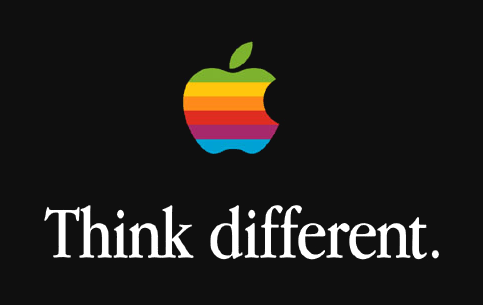Steve Jobs was extraordinary in countless ways—as a designer, an innovator, a (demanding and occasionally ruthless) leader. But his most singular quality was his ability to articulate a perfectly secular form of hope. Nothing exemplifies that ability more than Apple's early logo, which slapped a rainbow on the very archetype of human fallenness and failure—the bitten fruit—and turned it into a sign of promise and progress.
...
The biblical story of the Fall pronounced a curse upon human work—"cursed is the ground for thy sake; in sorrow shalt thou eat of it all the days of thy life." All technology implicitly promises to reverse the curse, easing the burden of creaturely existence. And technology is most celebrated when it is most invisible—when the machinery is completely hidden, combining godlike effortlessness with blissful ignorance about the mechanisms that deliver our disburdened lives. No company combined simplicity and hiddenness better than Apple under Mr. Jobs's leadership.
...
For people of a secular age, Steve Jobs's gospel may seem like all the good news we need. But people of another age would have considered it a set of beautifully polished empty promises, notwithstanding all its magical results. Indeed, they would have been suspicious of it precisely because of its magical results.
And that may be true of a future age as well. Our grandchildren may discover that technological progress, for all its gifts, is the exception rather than the rule. It works wonders within its own walled garden, but it falters when confronted with the worst of the world and the worst in ourselves. Indeed, it may be that rather than concealing difficulty and relieving burdens, the only way forward in the most tenacious human troubles is to embrace difficulty and take up burdens—in Dr. King's words, to embrace a "dangerous unselfishness."
Read the entire article here.

No comments:
Post a Comment